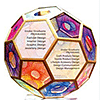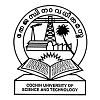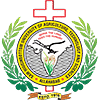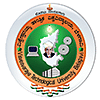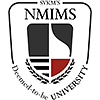MA Communication Syllabus and Subjects

The Master of Arts in Communication course is a two-year postgraduate program that focuses on communication, media, laws, ethics, politics, and society. MA Communication graduates learn about Media Theories, Media Laws and Ethics, Communication Forms, and the Political, Social, and Environmental Impact of Communication. The MA Communication subject covers a wide range of topics, from politics to the environment to the economy, as the course delves into the various forms of communication and their impact.
MA Communication Semester-Wise Syllabus
The MA Communication course syllabus is divided into two years with four semesters. During their first year, students are introduced to Media, Medium, and History of Media, with an emphasis on social issues and agendas. In the second year, the entire course is emphasized, with a focus on capstone projects and real-life projects. The following is a detailed MA Communication syllabus organized by semester:
First-Year MA Communication Syllabus
|
Semester I |
Semester II |
| Media and Society | Critical Approach to Communication Theories |
| Media Laws and Ethics: Issues and Debates | Communication Research |
| Reporting and Editing of Print Media | Advance Skill in Broadcast Journalism |
| Integrated Marketing Communications | Animation and Web Designing |
| Techniques of Graphic Communication and Visual Design | New Media and Digital Culture |
| Advanced Photography | Environmental and Social Issues: Global Perspectives |
| Contemporary Issues | Contemporary Issues |
| Cultural Education | Amrtia Value Program |
Second Year MA Communication Syllabus
|
Semester III |
Semester IV |
| Advance Research: Qualitative Approaches | Media, Politics and Social Perspectives |
| Film Studies: Theories and Analysis | Elective Paper III |
| Elective Paper I | Elective Paper IV |
| Elective Paper-II | Internship |
| Open Elective/ Live-in-Lab | Communication Research Project |
MA Communication Subjects
The MA Communication course is designed to provide students with the technical knowledge needed to work in the media industry. The entire MA Communications course is built around media laws and communication principles. The MA Communication programme also includes specializations, internships, and real-time collaborative projects with media houses. Students can select electives based on their preferences and interests in order to advance their career development and goals. Below is the MA Communication subject list:
- Media, Politics and Society
- Media management and policies
- Cyber communication
- Global communication
- Social Media Management
- Web Designing
- Media and culture studies
- Advanced Photography
- Media and Current Affairs
- Dissertation and others
- Print Stream
- Broadcast Stream
- Integrated Marketing Communication Stream
- New Media Stream
MA Communication Core Subject List
The core subjects are the essential subjects required to graduate from the course. Below is the MA Communication subject list:
- Media, Politics and Society
- Media management and policies
- Cyber communication
- Global communication
- Social Media Management
- Web Designing
- Media and culture studies
- Advanced Photography
- Media and Current Affairs
- Dissertation and others
- Print Stream
- Broadcast Stream
- Integrated Marketing Communication Stream
- New Media Stream
MA Communication Elective Subjects
Electives offer the student to pursue a variety of subjects to hone their skills in the field of communication and media. Below is a list of some subjects offered as electives:
- Marketing
- Camera and Lighting
- Film Studies
- Journalism Practices
- Laws and Ethics
- Visual Interpretation Communication
MA Communication Course Structure
MA Communication programmes include both core subjects and electives. The programme lasts two years and focuses on Media, Communication, Print Media, and Theories.Electives can be chosen by aspirants based on their interests and preferences. The final year is devoted to capstone projects, real-world commerce, and demo projects. Internships are available throughout the programme. MA Communication course includes
- Two Years
- Core Subjects
- Elective Courses
- Capstone Projects And Real-Time Projects
- Internships And Workshops
MA Communication Teaching Methodology and Techniques
MA Communication is all about getting hands-on experience and working on real-world projects. Students learn about films, journalism, media houses, producing, photography, and other topics. Many real-world projects combine action-based and traditional teaching methods. In their final year projects, students are encouraged to be strong in their technical skills and development, as well as their knowledge of media laws and ethics. In nutshell, the teaching structure includes:
- Case Studies
- Capstone Projects
- Real-time Projects
- Company Workshops
- Internships
- Practical Sessions
MA Communication Projects
The topics of the MA Communication projects are based on workshops and seminars held by universities in collaboration with media outlets, journalists, and well-known authors. Graduates are ready to work in the real world. The projects allow them to demonstrate their abilities and strategies while also motivating them to deal with real-world scenarios. Listed below are a few of the projects:
- Effectiveness of Facebook in Awareness Campaign Against Coronavirus
- A Study on Mental Health of Instagram on Young Adults
- Increase of Social Media on Public Relation Specialist
- Polarization of Journalism in Media Houses
- Effect of Yellow Journalism in Young Minds
MA Communication Reference Books
There are various books that touch on different topics on MA Communication. These books provide guidelines and basic information on communication and media theories. Listed below are some MA Communication books for reference:
| Name of Book | Author |
|---|---|
| Practices of Looking: An Introduction to Visual Culture | Marita Sturken |
| Fundamentals of Oral Communication | Roy Schwartzman |
| The Basics of Speech Communication | Scott McLean |
| The Visual Display of Quantitative Information | Edward R. Tufte |

